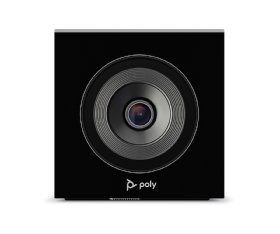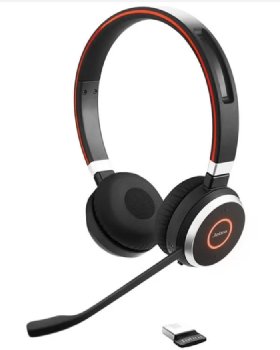
diego cervo - stock.adobe.com
Lower prices possible for AI headsets, webcams in 2021
In 2021, Jabra, Logitech and Poly could sell AI-powered headsets and webcams at prices more affordable to companies supporting employees working from home.
In 2021, pricing for headsets and webcams with AI capabilities will likely drop with the cost of providing the advanced features.
Manufacturers Jabra, Logitech and Poly plan to make the hardware more affordable for organizations that have to support a significant number of employees working from home during the COVID-19 pandemic. The downward pricing is due to the lower overall cost of components, including AI-powered processors.
"The cost of [AI] processing continues to get cheaper," said Irwin Lazar, an analyst at Nemertes Research. "[And] you're getting smarter hardware."
In headsets, noise cancellation has become popular to silence the background noise of rambunctious children and barking dogs. In webcams, AI-powered tracking software that lets the camera follow people as they move around a room has proven useful to teachers holding online classes over Zoom.
Movement-tracking webcams
Apryl Cooke, a special education teacher at Rock Springs Elementary, said her Orange County, Calif., school district was in the process of buying webcams for some high school and middle school instructors. Those teachers will be free to stand in front of a whiteboard "like we have in the past, without worrying as much about if the kids online could see what you were doing."
Devereaux Harry-Barnwell, a managing partner at New Jersey-based marketing company Geyser Digital Solutions, said he would appreciate the freedom brought by a tracking webcam.

"A camera that moves [and] adjusts to my movement would definitely be beneficial," he said. "When I'm in presentation mode, my camera view is small, and I'm not fully aware of myself in terms of position and can sometimes be out of the main view."
Poly offers the advanced technology in the $900 Poly Studio video bar and the $600 EagleEye Cube standalone camera. Logitech has similar features in its $900 Meetup huddle-room bar and its $1,400 Rally Camera.
Depending on the job, some workers might not need a more expensive AI-powered webcam. Abigail Armijo Hernández, a software analyst at Thomson Reuters, said her company offers the devices. Still, she doesn't need it on her laptop.
"I am good with the current webcam," she said.
Noise-killing headsets
Noise-cancellation headsets have become more of a must-have for people working from home, said Chris Thorson, senior marketing director at Poly.
"Everybody resonates with 'my dog is barking, my kids are screaming, my lawnmower guy is out the window,'" Thorson said. "That really was one of those aha features that drove a lot of hardware sales."

Noise cancellation on headset microphones is relatively new. It uses algorithms to distinguish between the human voice and external sounds to mute the latter.
In 2020, vendors sold the feature in premium headsets, such as the $250 Jabra Evolve 65 or the $200 Poly Blackwire 8225. Next year, prices will likely drop.
"It's a matter of hitting the right price point to make it more readily available," said Fredrik Lilliehöök, a senior marketing manager at Jabra.
Ionel Ursu, an IT specialist at the University of East London, said the school supplied some employees with the Jabra Evolve 65. In general, workers found the device helpful.
"[A] good-quality kit does replace face-to-face human interaction," Ursu said. "However, it helps when the sound coming from the other side is rich and crisp, as close to face to face as technically possible."
Whether noise cancellation on a headset will remain necessary is an open debate, as collaboration software makers Cisco, Microsoft and Zoom add the feature to their products. The hardware-agnostic technology could eventually match what's in a headset.
"That's the question that needs to be answered," Lazar said. "I don't know the answer to that one yet."








